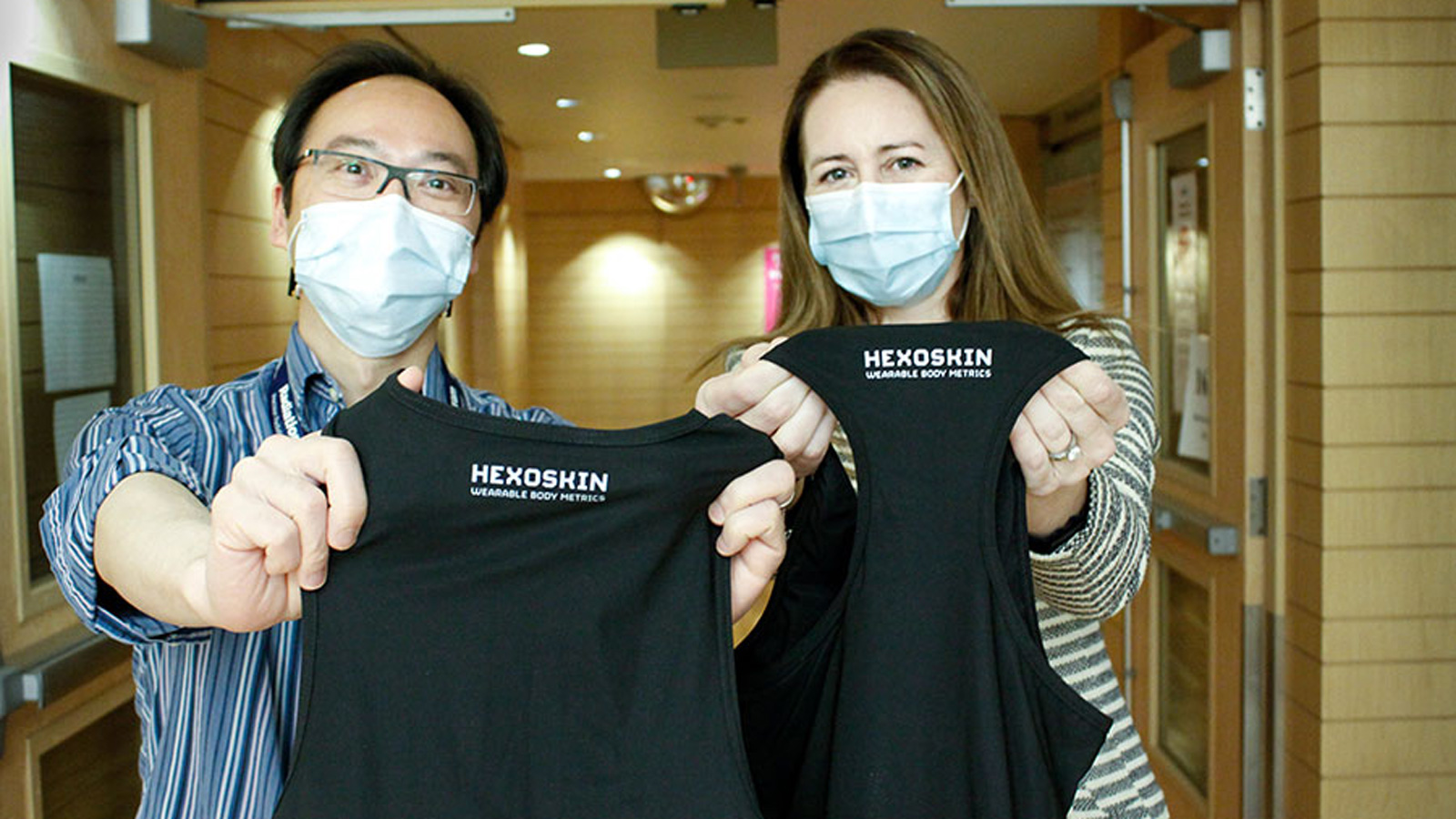
In what may be a world-first, Princess Margaret Cancer Centre radiation oncologists, Drs. Philip Wong and Aisling Barry, are testing new technologies used by Canadian and American space agencies to evaluate quality of life, treatment response and estimation of life span in palliative patients.
Their creativity and innovative ideas have garnered them the third Princess Margaret Grand Challenges Award for Digital Intelligence.
Launched about a year ago at the Princess Margaret, Grand Challenges Awards are advancing cancer diagnoses and treatments to cure more patients and improve quality of life by moving beyond chemotherapy.
The series sets the stage for the Princess Margaret moving boldly towards precision medicine and tailored individualized treatment plans for each patient.
"We are absolutely thrilled to receive this award not just for ourselves, but for our patients who could benefit from the use of novel technology," says Dr. Wong.
"Our monitoring technology is used by astronauts on space missions. We think our patients are as valued and cherished as our astronauts.
"We also know that they want to give back to society and help the next group of patients with what we have learned."
Founded in Montreal, Hexoskin technology has been used by astronauts in the Canadian Space Agency, European Space Agency and the Johnson Space Centre in Houston, Texas during various space missions and explorations, examining effects of microgravity on vascular aging and human physiology.
Goal to recruit 400 patients in total, 100 in the next year
"There is a large group of patients who rely upon radiotherapy for symptom management of their illness," adds Dr. Barry, who is the Lead of the Palliative Radiation Oncology Program at the Princess Margaret. "We would like to know how we can help these patients virtually, so that they don't have to come into the hospital, and to give them some control over their healthcare journey.
"We want to know whether giving patients these tools will make a difference to them, and to how they are doing."
The researchers' overall goal is to recruit 400 patients, representing 12.5 per cent of patients treated with palliative radiotherapy yearly at the Princess Margaret.
However, in order to gauge feasibility of interest and recruitment of patients, the initial focus will be on recruiting 100 patients over a 12-month period. They will be monitored over four weeks, as they are receiving palliative radiotherapy.
Patients will be randomly assigned to one of two arms of the clinic trial: standard of care, in-person follow-up with a physician, using a comprehensive digital platform for self-managing symptoms and health information; or virtual follow-up with patients' using both a digital platform and the slim-fitting, washable Hexoskin smart shirt tested by the Canadian Space Agency.
Specifically, researchers will assess whether they are able to recruit and randomize 100 interested patients to the clinical trial, reasons for acceptance or refusal, rate of completed follow-ups, patient satisfaction, overall survival, adherence to wearing the smart shirts and regular data reporting, as well as health-related quality of life.
Patients will be asked to wear the Hexoskin smart, which continuously monitors the user's vital signs, sleep, steps and activity with textile sensors embedded in it. The dataset records in real time, with up to 42,000 data points per minute. Both patients and researchers can see the recorded information on a dashboard. Each can call in to check and ask questions about any changes in the data.
Patients will also be asked to record their health symptoms, data and scans into a secure and comprehensive digital platform called ZoeInsights. The data is portable, and can be shared with whomever the patients chooses. It has innovative features such as My Health Routines that help patients or their caregivers record medication doses, symptom severity and health data quickly and easily.
"We want to improve our understanding of the patient experience as they progress through palliative care," says Dr. Wong. "This is an area that needs far more research and one which could benefit from new technological advances for proactive treatment and better accessibility for patients who live far away."
This story first appeared on UHN News.